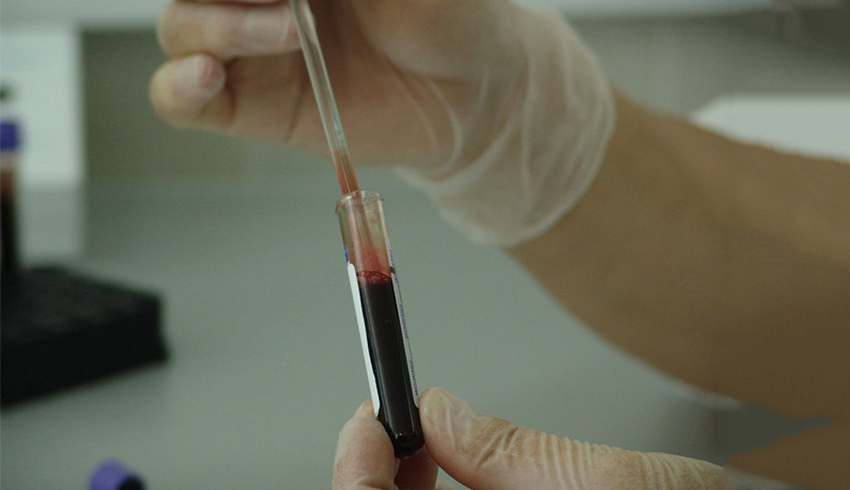Awareness
Importance of New Born Screening

The practice of testing all babies in their first days of life for certain disorders and conditions that can hinder their normal development is newborn screening. Doctors often can tell whether newborns have certain conditions that eventually could cause problems through a simple blood test. Although these conditions are rare and most babies are given a clean bill of health, but still, there are some rare cases where babies tend to have certain disorders. Early diagnosis and proper treatment sometimes can make the difference between lifelong impairment and healthy development. Newborn screening is performed using a few drops of blood from the newborn’s heel. Newborn screening varies by state and is subject to change. The disorders included in newborn screening programs are Phenylketonuria (PKU), Congenital Hypothyroidism, Galactosemia, Sickle cell disease, Cystic fibrosis (CF), and other disorders of metabolism. Apart from these, all newborns will also have a hearing screening.
Phenylketonuria (PKU) is a metabolic disorder. Metabolism simply refers to converts the fuel from food into energy needed to do everything from moving to thinking to growing. An abnormal chemical reaction in the body’s cells causes metabolic disorders. PKU is a rare condition that affects about 1 in 10,000 babies. A baby with this problem cannot properly use one of the building blocks of protein called phenylalanine. This accumulates in the blood and causes brain damage. Feeding an infant a special formula low in phenylalanine can prevent intellectual disability if PKU is detected early. A low-phenylalanine diet is needed throughout childhood and adolescence and sometimes into adult life. This diet cuts out all high-protein foods, so people with PKU often need to take a special artificial formula as a nutritional substitute.
Congenital Hypothyroidism affects about 1 in 3,500 babies. A gland at the front of the neck called Thyroid releases special chemicals called hormones that control both metabolism and growth. Babies with congenital hypothyroidism wouldn’t have enough thyroid hormone. It leads to slow growth and brain development. For a normal mental and physical development, early treatment with oral doses thyroid hormone is recommended.
Galactosaemia is an extremely rare disorder that affects 1 in 40,000 babies. There is an enzyme that converts galactose (one of two sugars found in lactose) into glucose, the major source of energy for the body’s cells. Babies who lack this enzyme tend to have a condition called Galactosaemia. For a baby with galactosemia, milk (including breast milk) and other dairy products must be removed from the diet and prompt treated with special galactose-free milk which helps to prevent the illness from getting severe. If Galactose is build up in the body, it can damage cells and organs, leading to blindness, severe intellectual disability, growth deficiency, and even death. A baby may become very sick and die if proper treatment is not given to babies who are affected with Galactosaemia. Galactosemia may not require any treatment if it is in any less severe form.
Sickle cell Anaemia is an inherited blood disorder. Normal Red blood cells with Haemoglobin are round-shaped and they are flexible enough to move through the bloodstream easily. But the Sickle cell anemia affected person’s red blood cells will tend to lose their oxygen-carrying capacity. Gradually this leads the Red blood cells to acquire the shape of a sickle. These cells become sticky, stiff, and more fragile. This makes it hard for them to move through the bloodstream. It can cause pain, damage to vital organs like the lungs and kidneys, and even death. Young children with sickle cell disease are especially prone to certain dangerous bacterial infections, like pneumonia. Early detection of Sickle cell anemia helps doctors to begin antibiotic treatment.
Cystic fibrosis (CF) happens 1 in every 2,500 babies. It is a genetic disorder that mainly affects the lungs and digestive system. In cystic fibrosis, the mucus produced in the intestines and lungs is thicker than normal. Kids who have it are more vulnerable to lung infections. It may lead to difficulties with digesting food properly in the intestines. The newborn screening test detects about 95% of babies with CF as well as it detects a few babies who are healthy carriers of CF. Babies with a positive test result will need a sweat test at about 6 weeks of age to determine whether the baby has CF or is only a healthy carrier. A healthy carrier is not affected by CF and their body functions normally. Early detection may help doctors reduce the problems associated with cystic fibrosis. There is no known cure for cystic fibrosis. The treatment helps to keep the lungs safe from infections.
Most states require that newborns have their hearing screened before they’re discharged from the hospital. If your baby isn’t examined by then, be sure that your little one gets screened within the first 3 weeks of life. Kids develop critical speaking and language skills in their first few years. A hearing loss that’s caught early can be treated to help prevent problems with that development.
The blood tested in the heel prick test can be tested for a range of other very rare metabolic disorders such as amino acid, organic acid, and fatty acid oxidation defects. Collectively these disorders occur in 1 of every 4,000 babies and so are rare. These conditions are often treatable with specialized care and diets.Phenylketonuria (PKU) is a metabolic disorder. Metabolism simply refers to converts the fuel from food into energy needed to do everything from moving to thinking to growing. An abnormal chemical reaction in the body’s cells causes metabolic disorders. PKU is a rare condition that affects about 1 in 10,000 babies. A baby with this problem cannot properly use one of the building blocks of protein called phenylalanine. This accumulates in the blood and causes brain damage. Feeding an infant a special formula low in phenylalanine can prevent intellectual disability if PKU is detected early. A low-phenylalanine diet is needed throughout childhood and adolescence and sometimes into adult life. This diet cuts out all high-protein foods, so people with PKU often need to take a special artificial formula as a nutritional substitute.
Congenital Hypothyroidism affects about 1 in 3,500 babies. A gland at the front of the neck called Thyroid releases special chemicals called hormones that control both metabolism and growth. Babies with congenital hypothyroidism wouldn’t have enough thyroid hormone. It leads to slow growth and brain development. For a normal mental and physical development, early treatment with oral doses thyroid hormone is recommended.
Galactosaemia is an extremely rare disorder that affects 1 in 40,000 babies. There is an enzyme that converts galactose (one of two sugars found in lactose) into glucose, the major source of energy for the body’s cells. Babies who lack this enzyme tend to have a condition called Galactosaemia. For a baby with galactosemia, milk (including breast milk) and other dairy products must be removed from the diet and prompt treated with special galactose-free milk which helps to prevent the illness from getting severe. If Galactose is build up in the body, it can damage cells and organs, leading to blindness, severe intellectual disability, growth deficiency, and even death. A baby may become very sick and die if proper treatment is not given to babies who are affected with Galactosaemia. Galactosemia may not require any treatment if it is in any less severe form.
Sickle cell Anaemia is an inherited blood disorder. Normal Red blood cells with Haemoglobin are round-shaped and they are flexible enough to move through the bloodstream easily. But the Sickle cell anemia affected person’s red blood cells will tend to lose their oxygen-carrying capacity. Gradually this leads the Red blood cells to acquire the shape of a sickle. These cells become sticky, stiff, and more fragile. This makes it hard for them to move through the bloodstream. It can cause pain, damage to vital organs like the lungs and kidneys, and even death. Young children with sickle cell disease are especially prone to certain dangerous bacterial infections, like pneumonia. Early detection of Sickle cell anemia helps doctors to begin antibiotic treatment.
Cystic fibrosis (CF) happens 1 in every 2,500 babies. It is a genetic disorder that mainly affects the lungs and digestive system. In cystic fibrosis, the mucus produced in the intestines and lungs is thicker than normal. Kids who have it are more vulnerable to lung infections. It may lead to difficulties with digesting food properly in the intestines. The newborn screening test detects about 95% of babies with CF as well as it detects a few babies who are healthy carriers of CF. Babies with a positive test result will need a sweat test at about 6 weeks of age to determine whether the baby has CF or is only a healthy carrier. A healthy carrier is not affected by CF and their body functions normally. Early detection may help doctors reduce the problems associated with cystic fibrosis. There is no known cure for cystic fibrosis. The treatment helps to keep the lungs safe from infections.
Most states require that newborns have their hearing screened before they’re discharged from the hospital. If your baby isn’t examined by then, be sure that your little one gets screened within the first 3 weeks of life. Kids develop critical speaking and language skills in their first few years. A hearing loss that’s caught early can be treated to help prevent problems with that development.
The blood tested in the heel prick test can be tested for a range of other very rare metabolic disorders such as amino acid, organic acid, and fatty acid oxidation defects. Collectively these disorders occur in 1 of every 4,000 babies and so are rare. These conditions are often treatable with specialized care and diets.










